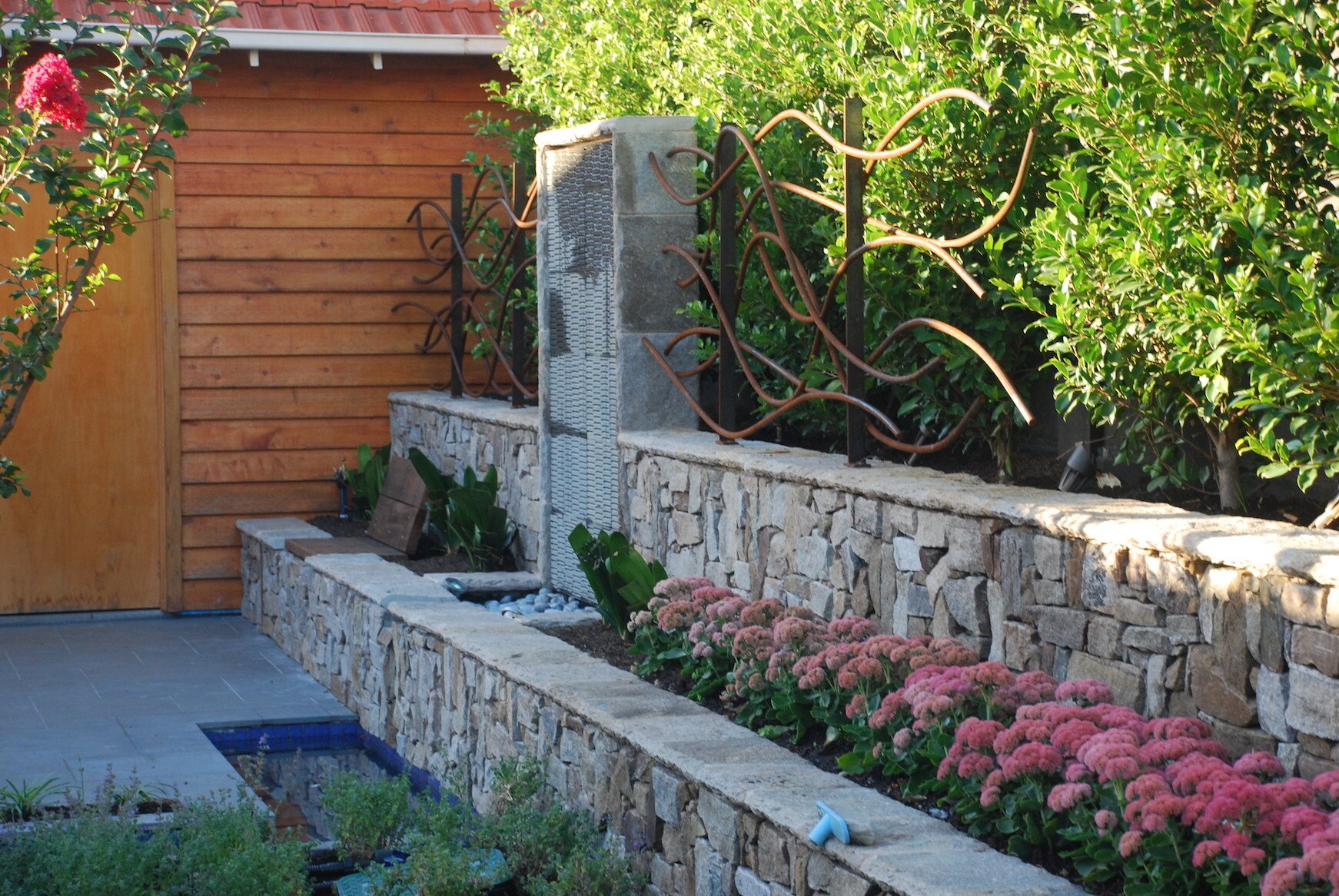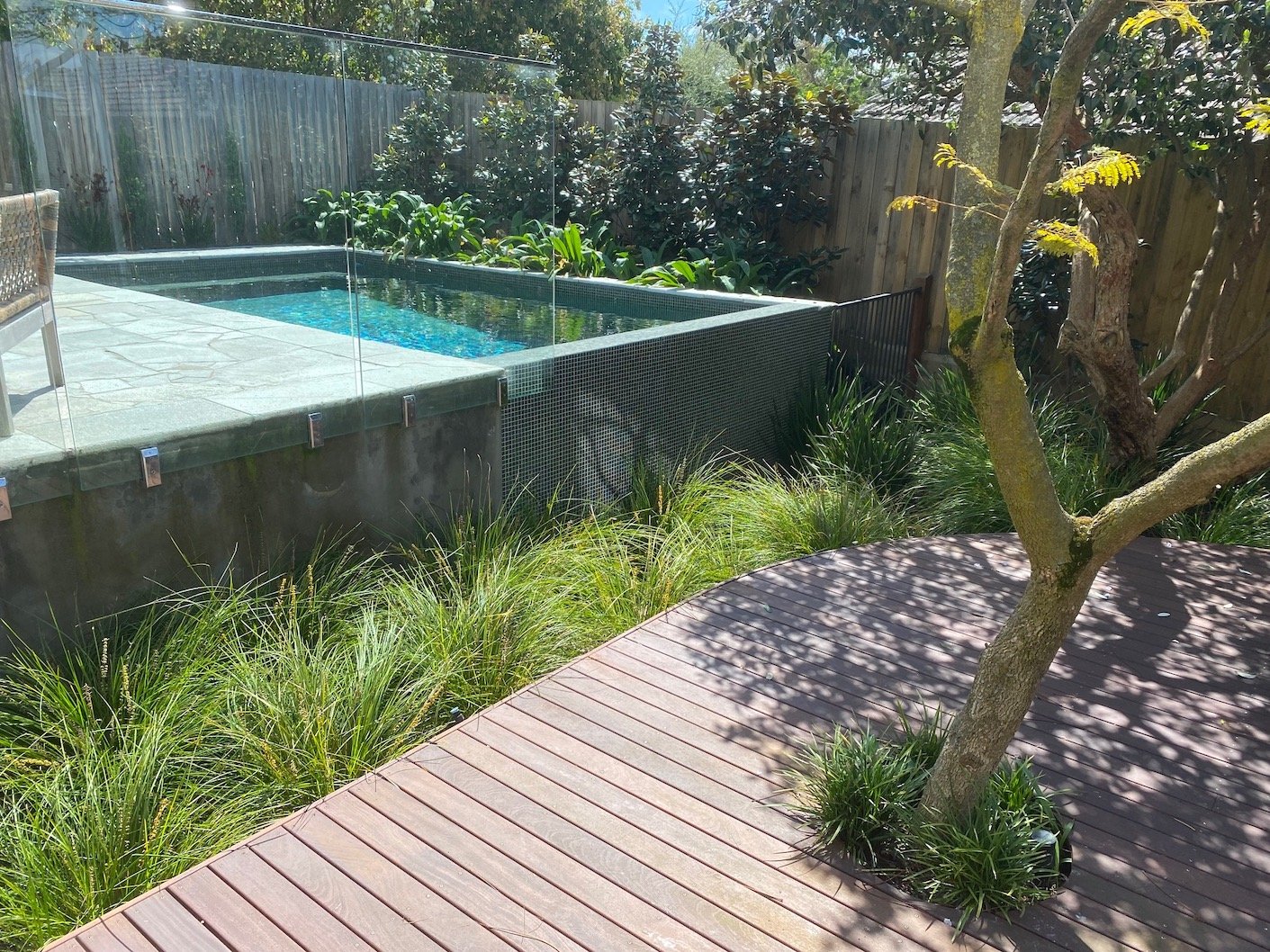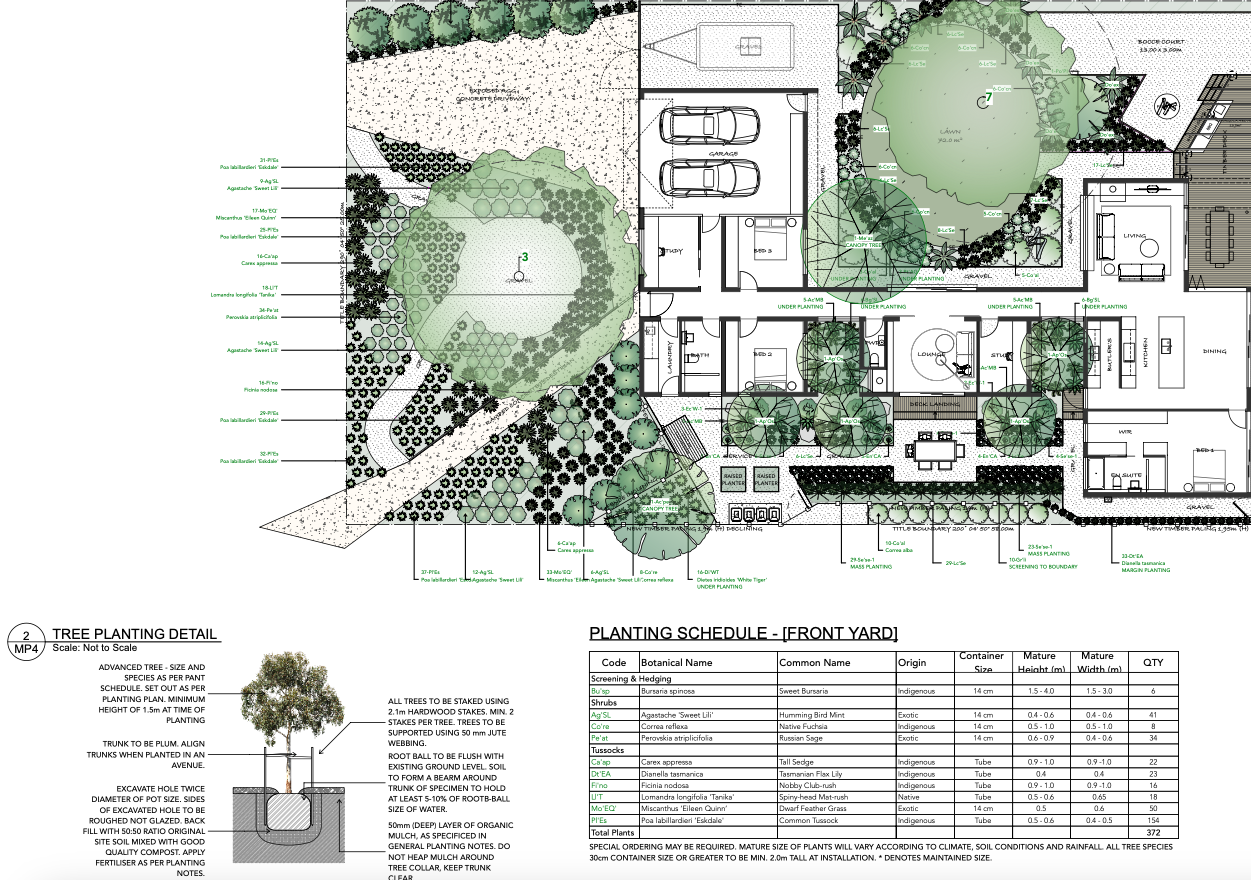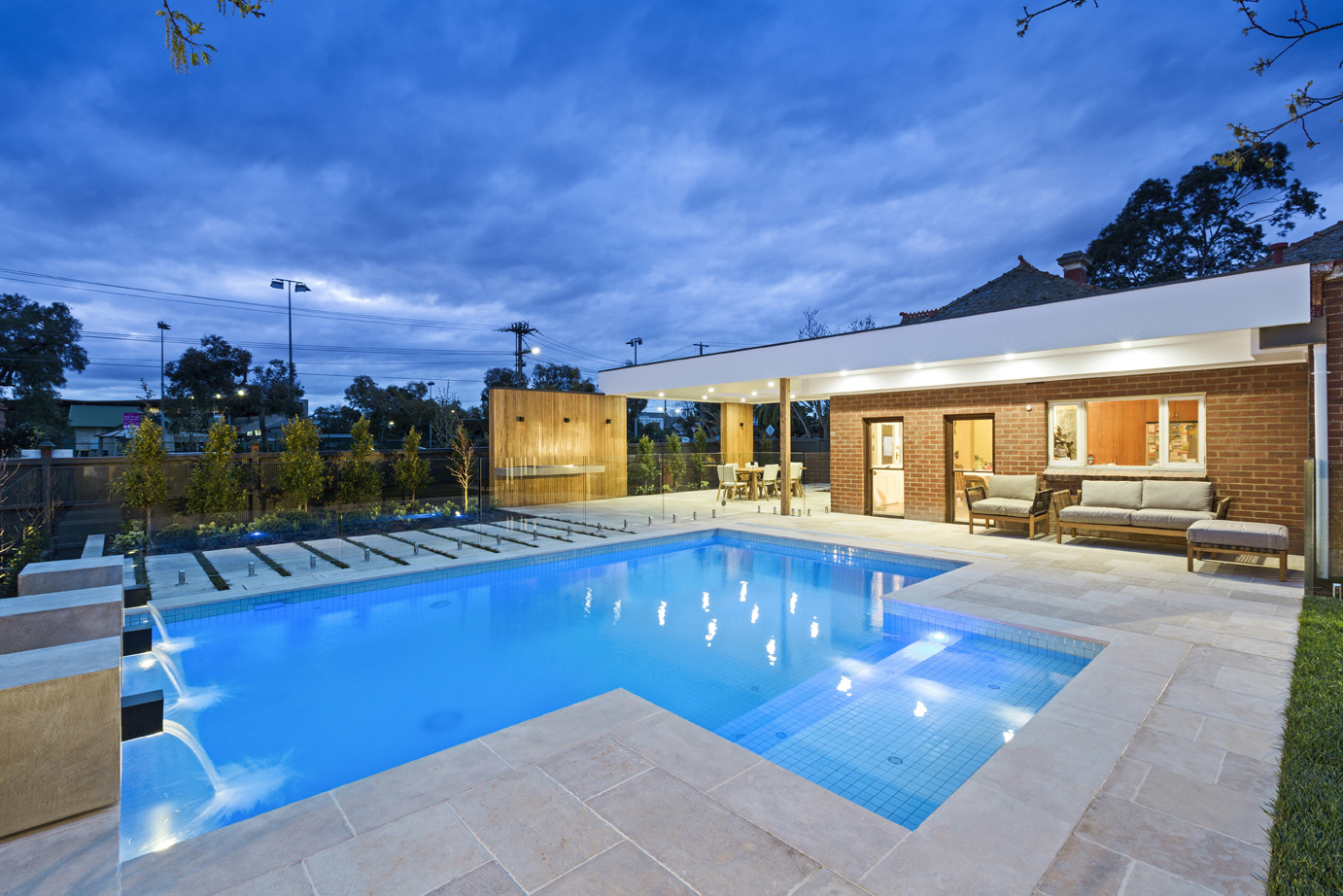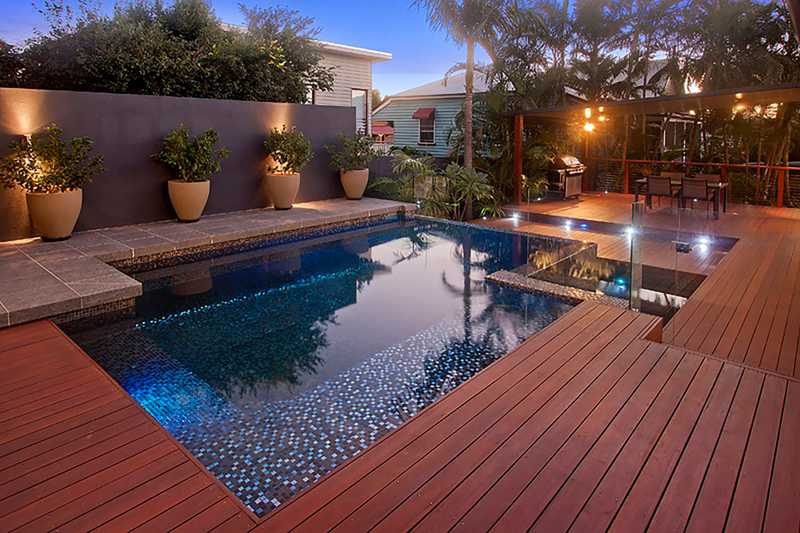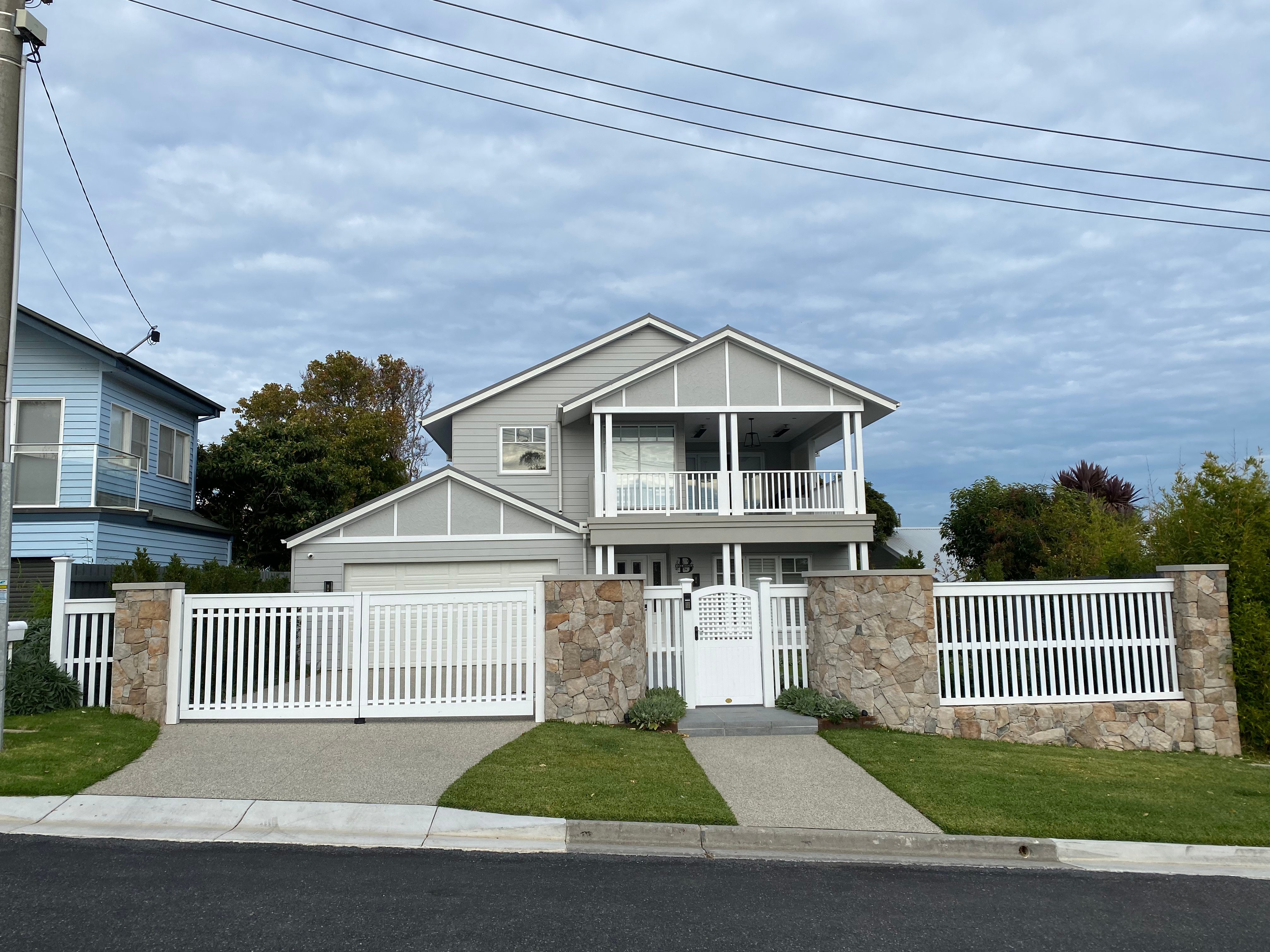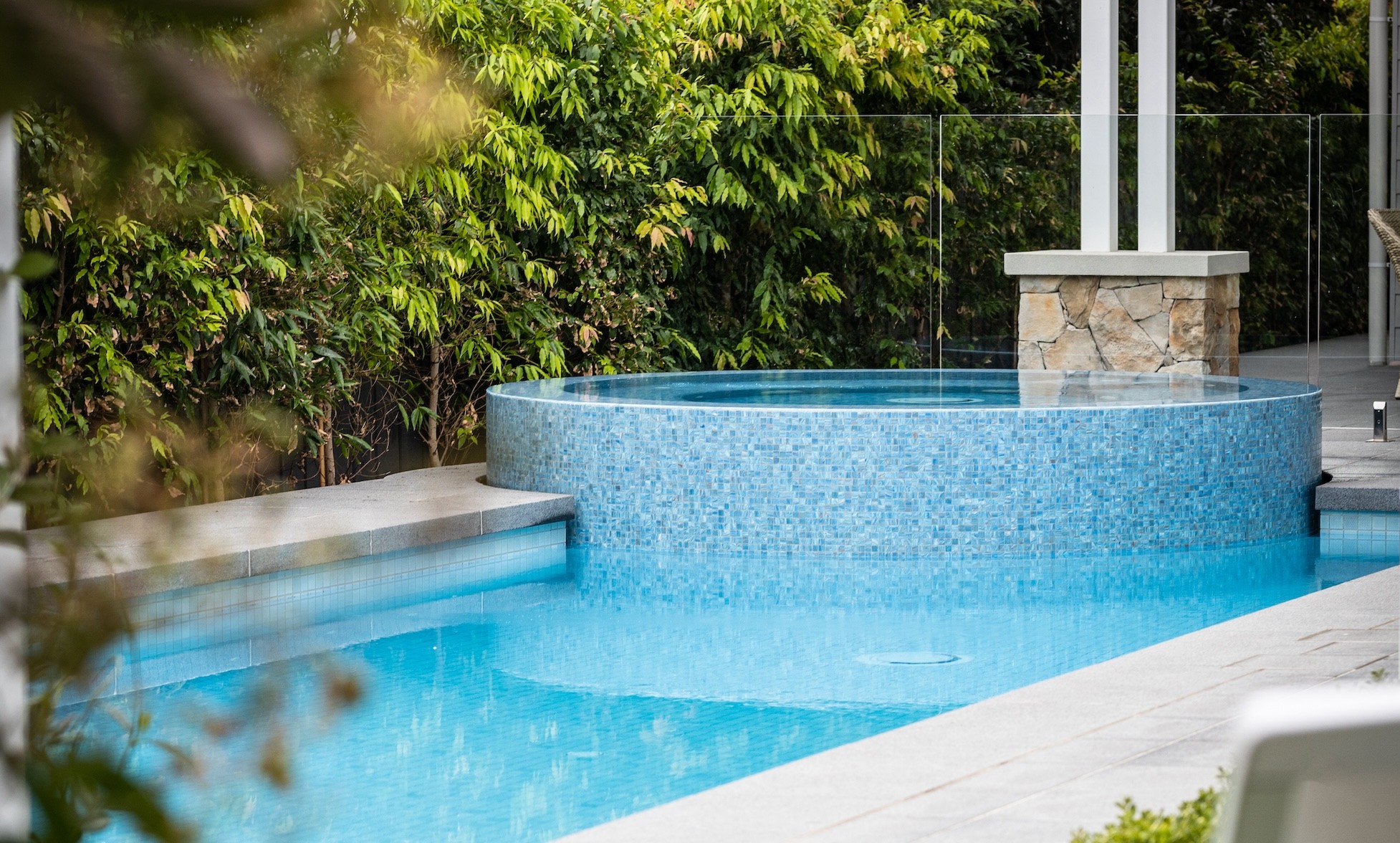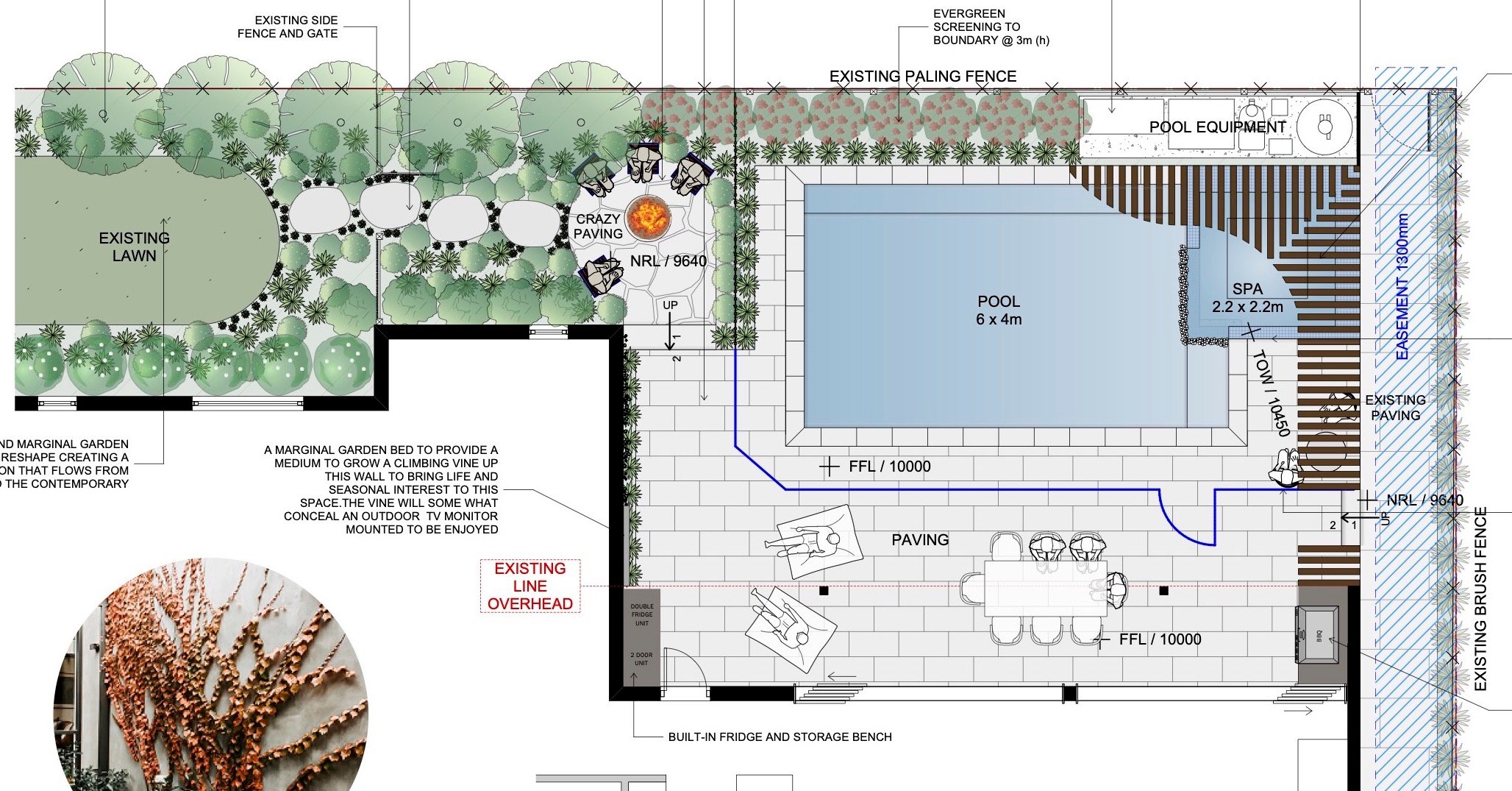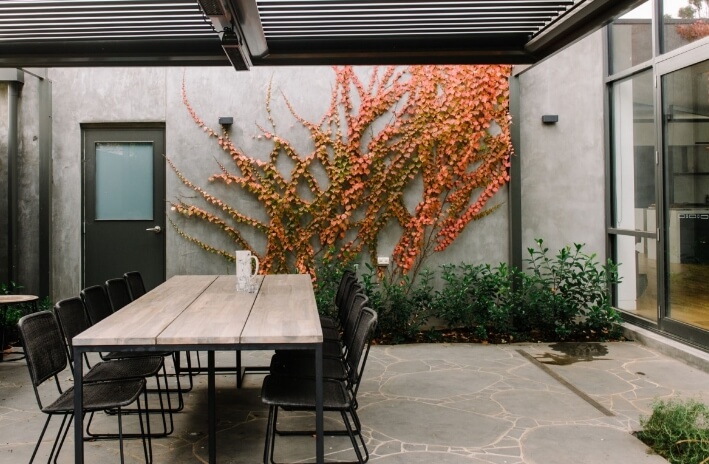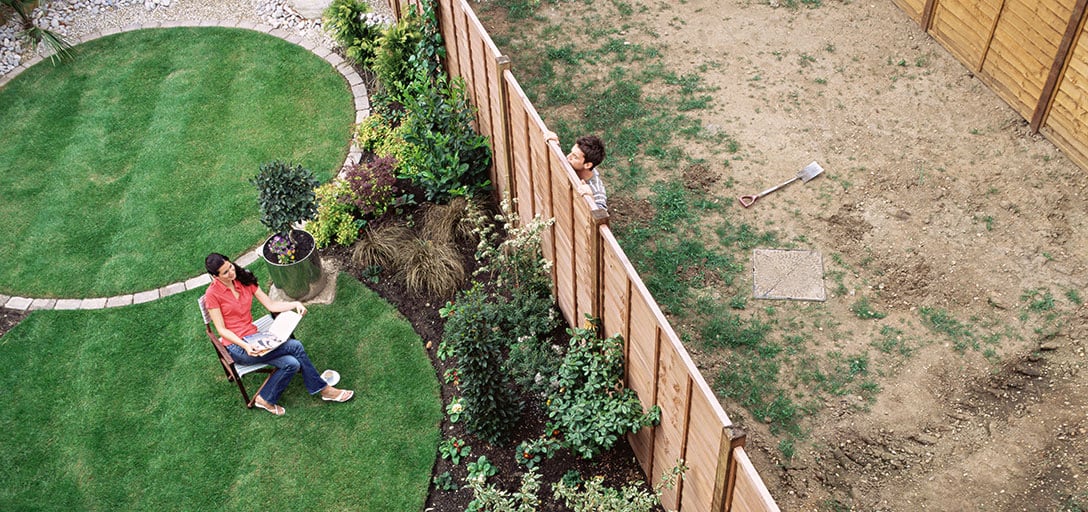
Have you been looking out at your garden lately and thinking, "Hmmm, I'd really like to make some changes out there"? Have you been toying with the idea of adding a major feature to your garden, like a deck, water feature, outdoor kitchen or even a swimming pool? Or do you even have a list of "small changes" you've been wanting to make to your garden for some time?
Over the past 30 years, we've been involved in garden projects for all sorts of clients. Some quite small, some medium-sized and some very big ones. One thing we've learnt is that, depending on various factors, there is a very clear line between projects you can do yourself and projects where you definitely need to bring in a landscape designer or landscape architect.
We tend not to take on projects that are too small for us where it might be better for the client to engage a landscaper directly and just get the work done with a minimal amount of design work.
But there are definitely projects where clients attempt to take on projects that are way beyond them. Often they end up getting themselves into a lot of trouble that could have been saved if they had just engaged a landscape architect or designer in the first place.
We hope that this article will help clarify for you when you don't need to engage a professional to design your garden and when it's absolutely critical that you do.
Do you really need a landscape designer?
Whether or not you really need to use a landscape designer or landscape architect for your particular project can depend on several factors.
Factors that may influence your decision can include:
- Your personal experience with landscaping projects
- Your available time
- Your available budget
- The complexity of the landscaping works you have in mind
- The degree of difficulty in working with your property (slope, access, other issues)
But ultimately whether or not you need a landscape architect or designer really comes down to just one keyword - complexity.
The complexity of creating your garden determines if you need a landscape ARCHITECT OR DESIGNER
The level of complexity involved in a project can often be the major deciding factor in whether or not you will need your garden designed professionally.
If your project is simply creating some new garden beds, this can be relatively easy if you are a keen gardener. You may be perfectly happy to visit some nurseries and look at other gardens to come up with ideas to plant out your garden. In this case, it's highly unlikely you will need to engage a landscape designer.
But once you start adding more elements to the project, the level of complexity tends to go up. Say you want to lay a new path between the garden beds. OK you might be able to do that yourself too if it's just some pavers (unless it needs a retaining wall due to the slope of your block.) Even a properly laid path might only need a paving contractor not a designer.
Now say you want to add a water feature to one of the garden beds as well as the path, again a landscape designer may not really be needed. But if that water feature becomes a pond and a spa or even a swimming pool things start getting much more complex that is when a professional landscape architect or landscape designer should come into the picture.
Then when you add any construction work such as decking, pergolas, verandahs, or gazebos, you get into a level of complexity that not only demands you hire a landscape designer but also you will need to engage a specific type of landscaper as well to construct everything. It's not only that you now have so many elements in your garden project that you need a designer to being them all together into a working design but the construction of many of these elements are regulated by Building & Construction Codes. These require that not only do you need to get permits and approvals to build them but that they must be constructed by a landscaper who is a Registered Building Practitioner. (See this blog for more information on who can and can't build all the elements in your garden and why - What type of landscaper will I need for my garden project)
It's also important to recognise a simple distinction at this stage. A landscape designer or landscape architect DESIGNS gardens. A landscaper BUILDS gardens. So whoever is designing your garden generally won't and can't build your garden too. Your landscaper generally won't design your garden. If you engage a company that both designs and builds gardens (like Whyte Gardens) you can get the whole project handled from start to finish by the same company.
The bottom line is that you really need to take a good look at the level of possible complexity involved in a landscaping project before deciding whether or not you need a landscape designer or landscape architect. The trouble is of course that as the old saying goes "It's what you don't know that will trip you up". The more complex a project is and the more it is outside your level of experience, the more likely that engaging a garden designer would be a smart move.
The worst possible situation you can get yourself into is where you start a project, get in over your head and have to engage a professional to pull you out of it. Generally, these situations start with someone discovering that "Oh I didn't know I couldn't do that!" or "Oh I never knew you needed a permit to build one of those!!!" And it will often be more expensive and more time-consuming to get someone out of a complex problem than it would have been to prevent them from getting into it in the first place by engaging a professional landscape designer from the start.
You are the designer, until you aren't
This might be a puzzling statement to you until you consider this.
When you first begin contemplating doing some landscaping around your home, you go into a dreaming phase. "Ah yes, a pool on those hot days would be wonderful!" Or "Ooh an outdoor kitchen area like my friends have would mean we could have more get-togethers at my house and that would be fun".
You start imagining where the pool could go (and the deck beside it). You might even start standing where the outdoor kitchen could be. Once you begin dreaming, you actually start thinking about the logistical aspects of your project, such as where should the pool be.
This is really you starting the whole process of being a landscape designer. Usually, this continues right up to the point you start to hit some uncertainty - like "OK should we get a concrete or fibreglass pool?". And "How would we fit a deck in there?". Or "Boy I'm not sure we could make an outdoor kitchen work on that side of the house!".
This is the exact moment where you start to recognise intuitively that maybe you need to bring in someone who knows more about these things than you because now you're getting into areas that are over your head and beyond your limited garden design skills. And that someone is a landscape designer or landscape architect - the person you need to hand over the designing job to!
They are the ones who can bring your dreams and ideas to life and make them exist in the real world. Most likely even better than you first imagined them.
Experience: Nothing can replace it
The one thing that really defines a professional is that they have already made all the mistakes that you are about to make. (Mistake you probably can't even see are coming.)
That's what experience really is. It's the difference between you looking at a landscaping project and saying to yourself "How hard can it be to put a pool in?" and a designer looking at one saying "I know exactly how hard it can be to put a pool in!"
For example, you could look at a designer who knows of 30 different types of pavers that you could choose to use for your project. You might say to yourself "But surely I could go to a paving supplier myself and soon I'd know about that many pavers too!"
The difference is that the landscape designer has already made the mistake in the past of choosing a paver they thought looked nice, only to be told by the landscaper that "sure they look pretty but they are really brittle and break easily when laying them."
Whether you choose a landscape architect or landscape designer, you benefit from all the experience they've gained from either making mistakes on their own past projects or discovering how to avoid them. Mistakes that you might be about to make but don't know anything about.
Here is a classic example. We recently revisited the home of a client whose garden we had landscaped many years ago. They were walking around with us, showing us how the garden had grown into something they really loved. When we got to the pool they told us how much joy it had brought to their kids having a pool in the back garden, but there was one thing they would do differently if they'd had their time over again. It concerned a particular type of sandstone we had used for the coping around the pool. (Coping is the "edging" that goes around the perimeter of a swimming pool. It usually overlaps the edge of the pool, giving you a lip that you can sit on, stand on or dive from.)
This sandstone had a slightly rough texture, which from a safety point of view was ideal because it meant you didn't slip on it when it was wet. But the client said that when the kids were in the pool all day they tended to hang on to the edge a lot and by the end of the day it acted a bit like sandpaper, grinding the skin off their fingers, to the point of occasionally bleeding.
Needless to say, armed with that experience we've never landscaped a pool with that kind of coping again. Every new client we have benefits from our experience with this.
Designing is creating ideas that you can't
While experience is a major reason for engaging a professional to design your garden, another important reason is the ideas they bring to the project. Ideas you may never have thought of yourself.
Now you may have developed your wishlist for what you want in your garden after much research and consideration. It may be a very basic wishlist or it may be a very well-developed and complex one with many elements. But whatever is on your wishlist, one of the key roles of a landscape architect or landscape designer is to present you with ideas that you haven't thought of.
It could be relatively simple, like using a material or adding a feature element you had never thought of. Or it could be completely rethinking the "flow" from one space in the garden to another so that every time you walk down the path you get a sense of adventure or discovery about it. It could even be completely flipping your idea of where the pool and deck could go, in order to better utilise the limited space you have in your garden. In short, it could be a multitude of things.
Garden designers are creative souls. They conjure something from nothing. They have the ability to create a thought or a spark if you will, that, once something else is added to it, turns from the glowing ember of an idea into a fully-fledged burning flame. (Maybe in a firepit!) A landscape architect or landscape designer is part artist and part technician. They dream of things that never were and ask why couldn't they be! They apply their hard-won years of study combined with their experience and like a magician, suddenly the design for your new garden unfolds before your eyes!
A good designer is also inquisitive. They like to understand who you are and what you admire. For a garden to truly resonate with you, it needs to be authentic to who you are. Your garden should be a portrait of you, your style, your desires, and what will make you the happiest when you are spending time in it.
You won't waste your time
Over the years we've met many clients who said, "You know I spent years looking at my garden and feeling it was boring and uninviting but I didn't really know what to do about it. I knew I needed something but I wasn't sure what."
Some people really get stuck at this point, not realising that you don't have to come up with a whole bunch of ideas for your garden first before you engage a landscape designer. A good designer will relish the idea of a challenge.
You can always bring a problem or set of problems to a designer, you don't have to bring your own ideas. You can simply say "You know my garden leaves me so uninspired but I don't know what to do about it".
Often people don't realise that the reason they are feeling stuck is simply that they are uncertain. It's perfectly normal for us to put projects and ideas on 'pause' when we are not sure what to do about them or how to get started. For some people, this can lead to a great deal of time lag between thinking about landscaping their garden and actually doing something about it.
This is another highly valuable reason for engaging a landscape designer or landscape architect. Not only can they help you get started by helping you to overcome uncertainties at the start of the project but they can help you overcome any other uncertainties you come across as the project progresses. A designer will tend to give you the confidence to point you in the right direction to resolve any issues that crop up and help you resolve them.
A good garden designer will deal in solutions, not problems. They will keep things moving, not remaining stopped.
Also where there is conflict or disagreement on a project, say between a husband and wife for example, a good designer can help create a middle path between the two that leads to a good solution each party might never have thought about on their own.
From a time efficiency point of view a designer can also dramatically cut down the research phase of a project because they already know what to suggest and what to ignore. If you wanted a pergola added to your garden, you could spend endless hours researching all the various different types and styles available and what you like, the costings, the pros and cons etc if you did it yourself. But a designer will already have the experience of having already designed many projects with pergolas so they have all that knowledge at their fingertips. This means they can make recommendations and suggestions that enable you to make decisions much more quickly and with more certainty.
You gain certainty, confidence, and control
There are three things that should develop and grow in you throughout the landscape design process that help you to recognise you are on the right path.
We call them the "3 C's" - certainty, confidence and control.
When you first meet a landscape designer or landscape architect, they should fill you with certainty that they are right for you. This in turn should fill you with confidence about your project - that ultimately it is the right decision for you to go ahead with your landscaping. And it should enable and empower you to feel like you are in control of everything, which you should be as the client.
This should continue throughout the process of briefing the designer, discussing the design concept for your garden, making any changes and seeing the project unfold.
For example, when a designer suggests an element for your garden and discusses it with you, there should come a point where you feel certain it is right for you. The more certain you are, the more this increases your confidence which allows you to feel a bit more adventurous about what your garden could actually become. Ultimately this allows you to feel more in control of the decision-making process so you can take actions towards having your project fully realised.
This is how you end up making informed decisions. We strongly recommend you never agree to anything based on faith alone. You never want to find yourself in a situation where you say "Oh but my designer was so lovely and seemed to know what they were talking about so we just kept saying go ahead." (We call this gambling and would not recommend it.)
As landscape designers and landscape architects, we work for you. They are the dreams you have for your garden. It must be designed with your lifestyle in mind. You know yourself better than anyone. But you need to feel certain about your decisions, confident in making them and feel like you are in control.
If you are then you will feel like you can commit to what it will take to bring your ideal garden into existence.
A better return on investment
A great landscape designer won't just bring ideas to your garden project that you might never have thought of yourself. Often they perform a strategic role as well. By asking you questions about why you are undertaking your landscaping project and what you hope to get out of it, they can often steer you away from making potential mistakes and steer you towards better outcomes.
In the process of getting briefed by you and working with you, they may often discover possibilities. Creativity is an endless process. Ideas are never finite.
For example, if the main reason you are landscaping your garden is because you wish to sell your home in a few years, then your designer will understand a key point about your project. And that is they are not only designing for you but for future potential buyers as well.
Having designed possibly hundreds of projects for many different clients, your garden designer will often have a much better grasp of what people tend to like in their gardens, and more importantly, don't like. Probably a much better grasp than you do.
So if for example, you express a desire in this situation to include in your landscaping project a putting green of artificial grass with an uneven surface - "just for fun" - a good designer might suggest that you include that in your new house, not the one you will be selling soon. This is for the simple reason that not many people would want something so quirky.
Alternatively, you might find yourself wondering whether installing a pool in your current home is actually a good investment. Well, this will depend. Are you installing it because you want it or are you installing it to get a better return on your property when you sell it? In many cases adding a $150,000 pool to a home will add much more value than that when it comes time to sell. But in some cases, you might just break even. Again this is where your designer can offer some helpful advice based on their experience with people and what they say about pools.
Ultimately a good designer should help guide you towards a design that allows you to have a garden you love now and a garden that will reap you financial benefits in the future.
An experienced garden designer should also be able to help you in smaller but still important ways that can help prevent you from overcapitalising. For example, you might say that you'd love to have some paving down the side of the house. Now often that part of the garden is where the utilities like the water heater or airconditioning units are located. The reality is that how many people are going to want to walk down there? Recognising this helps you understand why concreting the area rather than laying pavers is probably a better idea. And it comes in at around 1/3rd the cost.
In big and small ways, a landscape designer or landscape architect can often prove their worth many times over.
Uncovering hidden potential in a project
As well as steering you towards solutions that may save you money or prevent you from over-capitalising a good landscape designer can also help prevent you from under-capitalising by uncovering hidden potential in a project.
A very experienced landscape architect will add value to your project by coming up with ideas that you might never have thought of. Ideas that could return much more than the cost to be added to the project. Ideas that might involve just a small extra investment that could reap rewards.
At Whyte Gardens, we love surprising our clients with ideas or suggestions. We love hearing clients say "Oh I love that! We would never have thought of doing that (or adding that)!
The excitement of bringing surprising elements into play is one of the great joys a designer shares with their clients.
Designing should be an evolving process. One of contemplation, rejection, alteration and refinement. It's often not until you start the process of actually designing something that new discoveries can come to view. The very process itself allows for hidden gems to reveal themselves and be used as part of the design.
In many ways, it can be just like other creative people. A potter when they first start working with a lump of clay may only have a vague idea of what they are going to create. But as they begin to shape the clay on the potters wheel new ideas or shapes may evolve as they work the clay in their hands. From this can come new ideas.
Designing a garden can be just like this. At first, it can be just a vague idea but as the designer begins to create, do some research, and discuss concepts with a client, new ideas can emerge which, when nurtured, can grow into something much bigger. We think one of the most exciting elements of working with you as a designer is the possibility to uncover some unrealised potential in your garden and guide you along the path to realising it.
What skipping the design step could cost you
Over the years we have experienced some potential clients approaching us with a landscaping project who will say to us upfront "Can we skip the design phase to save money for the actual landscaping work?"
We cannot emphasise enough what a potentially perilous path this can lead you down. You would never build a house without a design or architect's drawings yet some people think you can construct a garden with a pool, deck and outdoor kitchen without them.
Engaging a landscape architect or designer not only helps you formulate exactly the destination you want to end up with, but it also plots the best way of getting there. Trying to commence the work of constructing a garden without an overall Concept Design and Master Plan of how to get there is fraught with danger and more likely to cost well in excess of any savings you might make. (For an understanding of the value of a Concept Design in charting your new garden destination, please see this article - What is a Concept Design in Landscaping?
Creating a new garden by just trying to start building it and seeing how it all comes together can be a recipe for disaster. Unforeseen issues crop up, drastic changes have to be made on-site, scheduling tradesmen becomes chaotic, time is wasted, and excess costs skyrocket.
Also, designers will often suggest more economical ways to achieve the same end result, so even on this basis, you may recoup your investment many times over by choosing to engage one.
If you've read this far, we hope you will realise that engaging a landscape designer or landscape architect is ultimately for your benefit, not the designer's.
Now the only thing left to decide is which landscape architect or landscape designer? May we suggest you book your free no-obligation discovery consultation to find out if we might be the right one for you?
Articles covering Landscape Design and Construction in Melbourne...
What is the true value of a landscape designer?
What's included in a landscape designer's Master Plan?
How many stages does it take to design & landscape a new garden?
Founder of Whyte Gardens
Topics:



